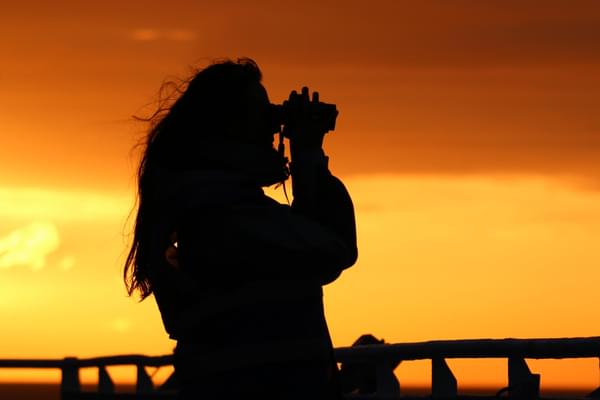Few conservation stories are as quietly triumphant as the return of South Africa’s southern right whales. Since 1969, researchers have flown the same stretch of coast between Nature’s Valley and Muizenberg every year, counting every female with a calf. In the late 1970s, they levelled up: overhead photographs began capturing each whale’s unique callosity pattern, turning the skies into a giant passport office for whales. Thanks to this discipline and continuity, CapeNature reports that the population now sits at around 6,500 whales and is still rising by roughly 6.5% a year and the dataset itself has become one of the longest, uninterrupted records for any marine mammal on Earth.
The 2025 aerial survey was scheduled to kick off on Monday 29 September, following well-tested protocols. A helicopter will sweep the coastline at ~300 metres, logging all whale species but paying special attention to southern right females with calves, plus individuals with distinctive brindle colouration or other unique markings. From 6 October, the MRI Whale Unit at the University of Pretoria will pick up the story at sea, deploying satellite transmitters on adult whales in Walker Bay to learn how, when, and where they travel once they leave the nursery grounds.
Early indications this September were encouraging: a preliminary count recorded 154 females with calves between Hermanus and Witsand, similar to 2021. When the full survey ends, the team will publish an updated tally and place this season in context with nearly half a century of records.
And this is exactly why ORCA’s work matters, too. Long-term, real-time monitoring is how we move from snapshots to understanding. ORCA’s ship-based surveys and citizen-science programmes build living maps of whale and dolphin presence, behaviour, and threats in UK and European waters. The methods differ, helicopters in South Africa, surveyors on ferries and cruise ships here, but the principle is the same: consistent data, gathered again and again, is what allows us to spot trends, protect critical habitats, and act quickly when populations change. It’s how you safeguard a recovery and prevent the next decline.

Citizen science is at the heart of everything we do and this year we have made it even easier to get involved in whale and dolphin conservation with our e-learning courses. These new courses are the perfect introduction to the world beneath the waves and will teach you everything you need to know about spotting, identifying and record vital scientific data on these incredible animals so that you too can help ORCA's conservation work. Course are live today so visit learn.orca.org.uk to find out more and start your journey to helping us protect whales and dolphins around the world.

